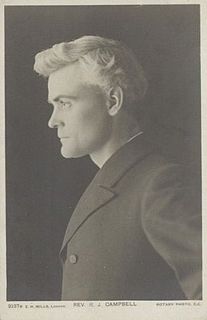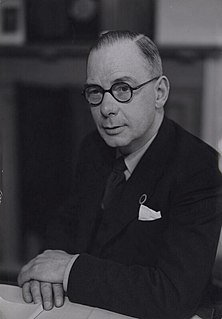A Quote by Josef Pieper
The brave man uses wrath for his own act, above all in attack, 'for it is peculiar to wrath to pounce upon evil. Thus fortitude and wrath work directly upon each other.
Related Quotes
Wrath, unlike love, is not one of the intrinsic perfections of God. Rather, it is a function of God's holiness against sin. Where there is no sin, there is no wrath-but there will always be love in God. Where God in His holiness confronts His image-bearers in their rebellion, there must be wrath, or God is not the jealous God He claims to be, and His holiness is impugned. The price of diluting God's wrath is diminishing God's holiness.
It is no strain of metaphor to say that the love of God and the wrath of God are the same thing, described from opposite points of view. How we shall experience it depends upon the way we shall come up against it: God does not change; it is man's moral state that changes. The wrath of God is a figure of speech to denote God's unchanging opposition to sin; it is His righteous love operating to destroy evil. It is not evil that will have the last word, but good; not sorrow, but joy; not hate, but love.
He could feel V's eyes sharpen, the vampire's fierce intellect churning over the situation. Among the brothers, Vishous had the most raw brainpower, but he paid for the privilage. Man, Wrath sure had his own demons, and they were no walk in the park, but he wouldn't have wanted Vishous's cross to bear. Seeing what had yet to come was a terrible burden. -Wrath's thoughts
God's wrath is not an implacable, blind rage. However emotional it may be, it is an entirely reasonable and willed response to offenses against his holiness. But his love . . . wells up amidst his perfections and is not generated by the loveliness of the loved. Thus there is nothing intrinsically impossible about wrath and love being directed toward the same individual or people at the same time. God in his perfections must be wrathful against his rebel image-bearers, for they have offended him; God in his perfections must be loving toward his rebel image-bearers, for he is that kind of God
THE POISON TREE I was angry with my friend: I told my wrath, my wrath did end. I was angry with my foe; I told it not, my wrath did grow. And I water'd it in fears, Night & morning with my tears; And I sunned it with my smiles And with soft deceitful wiles. And it grew both day and night, Till it bore an apple bright; And my foe beheld it shine, And he knew that it was mine, And into my garden stole When the night had veil'd the pole: In the morning glad I see My foe outstretch'd beneath the tree.







































